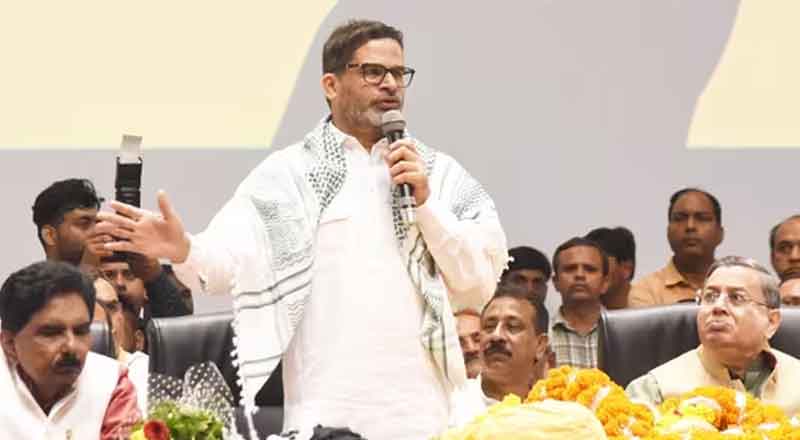The Union Government has notified the Aadhaar (Targeted Delivery of Financial and Other Subsidies, Benefits and Services) Act, 2016, thus giving a legal shape to UIDAI by operationalizing some of its provisions.
With 1.05 billion Aadhar biometric ID cards already issued till date, the government and regulator are in the process of setting up a national digital payments infrastructure, according to a senior official.
However, with the Aadhar Act being notified two months back, the challenge now is of enrolling the remaining 20 crore people, who are still out of the Unique ID (UID) system, most importantly people hailing from places difficult to access and remote areas.
The second challenge is of activating systems to keep these 1 billion-plus data updated, as required in two diverse time-cycles of five and 15 years. And the other big challenge is how to promote the use of Aadhar.
“For the first time, what is accelerating transformation in India are the two agents – government and regulator,” Secretary Ministry of Electronic and Information Technology (MeitY) Aruna Sundararajan said while addressing a gathering. “What is driving this change … innovation and disruption, and the technology initiatives of the government are way ahead. Today government and regulator are ahead of the curve,” she said.
“We will move all transfers (subsidy) towards digital Direct Benefit Transfer (DBT) payments,” she further added.
The notification of the Aadhaar Act comes even as the Supreme Court is still to take a final call on whether Aadhaar number can be made mandatory for delivery of government benefits and subsidies to citizens. In its order on October 15, 2015, the court had said Aadhaar would be voluntary.
New Appointments at UIDAI
The recently passed Aadhaar Act also required the government to appoint a chairperson on part time or full-time basis, two part time members and a CEO of UIDAI. To this end, the government has chosen retired IAS officer and former DEITY Secretary J Satyanarayana as the Chairperson of the Unique Identification Authority of India (UIDAI). He succeeds former Infosys co-founder Nandan Nilekani who was the first chairman and had stepped down from the post in 2014.
The post of chairperson has been lying vacant since Nandan Nilekani resigned over two years ago.
For filling the top posts at UIDAI, the government had set up a screening committee and the Appointments Committee of Cabinet headed by the Prime Minister has made the appointments.
Satyanarayana, a 1977 batch IAS officer of the Andhra Pradesh cadre, has been appointed as a part-time chairperson of UIDAI. The present CEO of UIDAI, Ajay Bhushan Pandey is a serving IAS officer. The government on Tuesday appointed two private persons as the part-time members — Rajesh Jain, founder and managing director of netCORE solutions, and Anand Deshpande, founder and CEO of Persistent Systems.
Satyanarayana, who has an MBA and MSc in Physics, was DEITY Secretary from 2012 till his retirement in 2014, a department which has been closely associated with the Aadhaar project.
He is known for his contributions in the e-governance sector and was the founder of the e-seva, a one stop shop for citizen services. He has also been part of the Passport Seva project of the External Affairs Ministry and various e-governance projects in Karnataka. He served as special chief secretary in Andhra Pradesh.
Rajesh Jain, the netCORE solutions founder is a well known Mumbai entrepreneur who graduated from IIT Bombay and has a Masters in electrical engineering from Columbia University.
Jain has been the convener of the ‘Friends of BJP’, a network of professionals on social media, which worked with the BJP during the 2014 campaign.
Anand Deshpande, the chairman and MD of Persistent Systems, is a BTech from IIT Kharagpur and a Computer Science MS from Indiana University.
Both Jain as well as Deshpande will work as the part-time members of UIDAI.
The Aadhaar Act was consented to be notified in two phases for operationalisation of the Act. The chairperson and members once appointed will pass the regulations for notifying rest of the Act. Right now, only Sections 11to 20, 22 to 23 and sections 48 to 59 of the 2016 Aadhaar Act have been notified for operationalisation, with the rest of the Acts yet to be operationalized.
The Road Ahead…
CDFI, a non government think tank working on research, innovation and dissemination in the area of digital financial inclusion, is currently assisting MeitY and other departments in the process for digital payments enablement. It is also assisting the government in the conceptualization and overall branding of the Social Security Platform. It is asking the government to adopt some of the innovations and applications it has developed like the Financial Inclusion MIS and Dashboard that provides a platform to measure the performance of bank business correspondents and other stakeholders against predefined parameters.
CDFI has just completed two years of existence, almost coinciding with the second anniversary of the government’s Jan Dhan scheme for financial inclusion and is supported by the Bill & Melinda Gates Foundation (BMGF) and Tata Trusts, among others.
In his address, Deputy Director BMGF Daniel Radcliffe, said India is much ahead of other countries in Asia and Africa in setting up a digitised system for implementing financial inclusion.
“India is way ahead of many other countries. We are convinced that India will teach the world about financial inclusion,” Radcliffe said, referring to the phenomenal “intersection of financial inclusion and digital technology” in India.
“What is unique about India is the way the government is playing a pro-active role in building a payments and ID infrastructure. This has opened the space to private players for a supportive structure of payment banks, fintech, mobile money,” he added.




